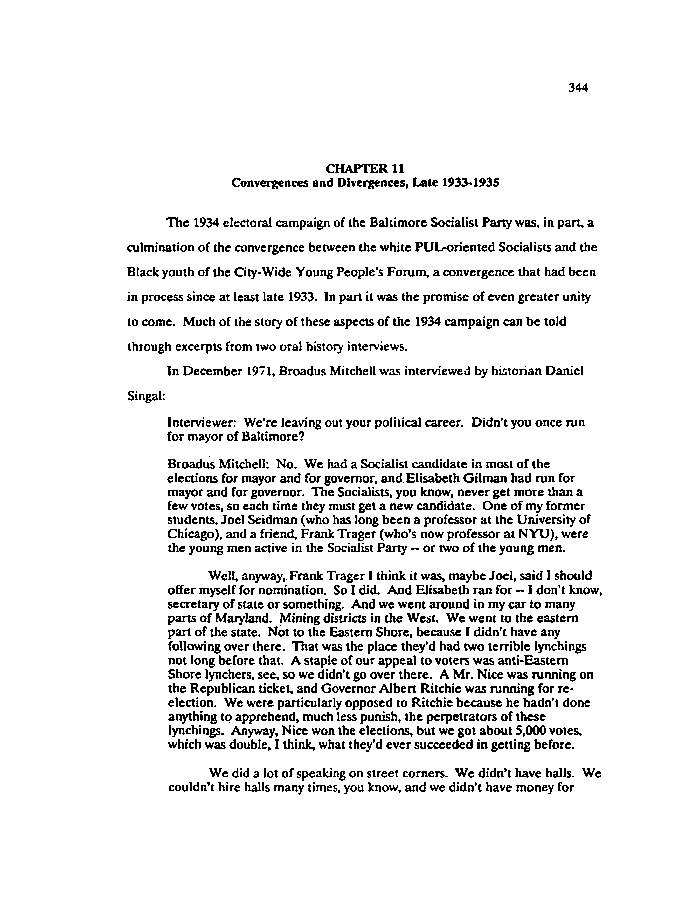|
344
CHAPTER 11
Convergences and Divergences, Late 1933*1935
The 1934 electoral campaign of the Baltimore Socialist Party was, in part, a
culmination of the convergence between the white PUL-oriented Socialists and the
Black youth of the City-Wide Young People's Forum, a convergence that had been
in process since at least late 1933. In part it was the promise of even greater unity
to come. Much of the story of these aspects of the 1934 campaign can be told
through excerpts from two oral history interviews.
In December 1971, Broadus Mitchell was interviewed by historian Daniel
Singal:
Interviewer: We're leaving out your political career. Didn't you once run
for mayor of Baltimore?
Broadus Mitchell: No. We had a Socialist candidate in most of the
elections for mayor and for governor, and Elisabeth Oilman had run for
mayor and for governor. The Socialists, you know, never get more than a
few votes, so each time they must get a new candidate. One of my former
students, Joel Seidman (who has long been a professor at the University of
Chicago), and a friend, Frank Trager (who's now professor at NYU), were
the young men active in the Socialist Party — or two of the young men.
Well, anyway, Frank Trager I think it was, maybe Joel, said I should
offer myself for nomination. So I did. And Elisabeth ran for — I don't know,
secretary of state or something. And we went around in my car to many
parts of Maryland. Mining districts in the West. We went to the eastern
part of the state. Not to the Eastern Shore, because I didn't have any
following over there. That was the place they'd had two terrible lynchings
not long before that. A staple of our appeal to voters was anti-Eastern
Shore lynchers, see, so we didn't go over there. A Mr. Nice was running on
the Republican ticket, and Governor Albert Ritchie was running for re-
election. We were particularly opposed to Ritchie because he hadn't done
anything to apprehend, much less punish, the perpetrators of these
lynchings. Anyway, Nice won the elections, but we got about 5,000 votes,
which was double, I think, what they'd ever succeeded in getting before.
We did a lot of speaking on street corners. We didn't have halls. We
couldn't hire halls many times, you know, and we didn't have money for
|

